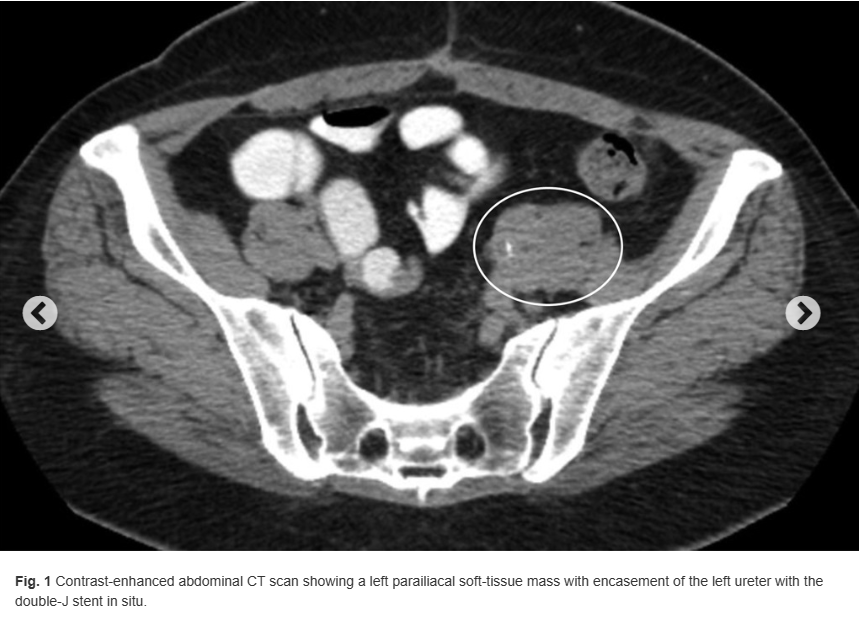A 49-year-old woman was referred to our tertiary care center for a second opinion on chronic pain symptoms in the abdomen, lower back, and left iliac fossa. On admission, she reported long-standing symptoms of constipation and recurrent urinary tract infection. These symptoms had developed after spondylodesis at the level of L5-S1 had been performed 3 years prior to address recurrent back pain after an earlier surgical procedure to treat herniated nucleus pulposus. Spondylodesis was performed with a combined anterior (i.e., left-sided retroperitoneal) and posterior approach and was complicated by retroperitoneal bleeding of unknown quantity. At 4 weeks after spinal surgery, the patient was readmitted to the hospital with left-sided hydroureteronephrosis. The abdominal computed tomographic (CT) scan at that time showed a left-sided parailiacal mass enveloping and constricting the left ureter (Fig. 1), for which a double-J stent was placed. The patient did not use methysergide or any other ergot derivative.


